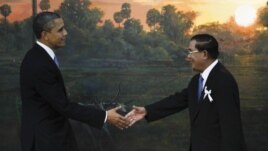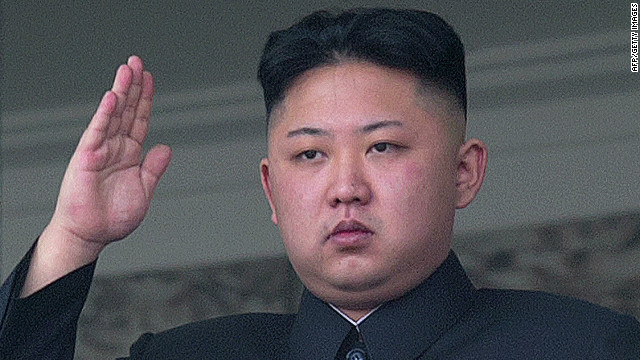 S
SIN THET MAW, Myanmar — Guarded by rifle-toting police, immigration authorities in western Myanmar have launched a major operation aimed at settling an explosive question at the heart of the biggest crisis the government has faced since beginning its nascent transition to democracy last year.
It’s a question that has helped fuel two bloody spasms of sectarian unrest between ethnic Rakhine Buddhists and Rohingya Muslims since June, and it comes down to one simple thing: Who has the right to be a citizen of Myanmar, and who does not?
A team of Associated Press journalists that traveled recently to the remote island village of Sin Thet Maw, a maze of bamboo huts without electricity in Myanmar’s volatile west, found government immigration officials in the midst of a painstaking, census-like operation aimed at verifying the citizenship of Muslims living there, one family at a time.
Armed with pens, stacks of paper and hand-drawn maps, they worked around low wooden tables that sat in the dirt, collecting information about birth dates and places, parents and grandparents — vital details of life and death spanning three generations.
The operation began quietly with no public announcement on Nov. 8 in the township of Pauktaw, of which the village of Sin Thet Maw is a part. It will eventually be carried out across all of Rakhine state, the coastal territory where nearly 200 people have died in the last five months, and 110,000 more, mostly Muslims, have fled.
The Thailand-based advocacy group, the Arakan Project, warns the results could be used to definitively rule out citizenship for the Rohingya, who have suffered discrimination for decades and are widely viewed as foreigners from Bangladesh. Muslims in Sin Thet Maw echoed those concerns, and said they had not been told what the operation was for.
"What we know is that they don’t want us here," said one 34-year-old Muslim named Zaw Win, who said his family had lived in Sin Thet Maw since 1918.
So far, more than 2,000 Muslim families have gone through the process, but no "illegal settlers have been found," said state spokesman Win Myaing.
It was not immediately clear, however, what would happen to anyone deemed to be illegal. Win Myaing declined to say whether they could deported or not. Bangladesh has regularly turned back Rohingya refugees, as have other countries, including Thailand.
Few issues in Myanmar are as sensitive as this.
The conflict has galvanized an almost nationalistic furor against the Rohingya, who majority Buddhists believe are trying to steal scarce land and forcibly spread the Islamic faith. Myanmar’s recent transition to democratic rule has opened the way for monks to stage anti-Rohingya protests as an exercise in freedom of expression, and for vicious anti-Rohingya rants to swamp Internet forums.
In the nearby town of Pauktaw, where all that remains of a once-significant Muslim community are the ashes of charred homes and blackened palm trees, the hatred is clear. Graffiti scrawled inside a destroyed mosque ominously warns that the "Rakhine will drink Kalar blood." Kalar is a derogatory epithet commonly used to refer to Muslims here.
Myanmar’s reformist leader, President Thein Sein, had set a harsh tone over the summer, saying that "it is impossible to accept those Rohingya who are not our ethnic nationals."
But this month, he appeared to change course, penning an unprecedented and politically risky letter to the U.N. promising to consider new rights for the Rohingya for the first time.
In the letter, Thein Sein said his government would address contentious issues "ranging from resettlement of displaced populations to granting of citizenship," but he gave no timeline and stopped short of fully committing to naturalize them.
The operation observed by the AP in Sin Thet Maw appeared to be part of an effort to resolve the issue.
By law, anyone whose forefathers lived in Myanmar prior to independence in 1948 has the right to apply for citizenship. But in practice, most Rohingya have been unable to. They must typically obtain permission to travel, and sometimes even to marry.
Discrimination has made it hard to obtain key documents like birth certificates, according to rights groups. Many Rohingya, having migrated here during the era of British colonial rule, speak a Bengali dialect and resemble Muslim Bangladeshis, with darker skin than other ethnic groups in Myanmar.
The road to naturalization grew more difficult with a 1982 citizenship law that excluded the Rohingya from a list of the nation’s 135 recognized ethnicities. Since Bangladesh also rejects them, the move effectively rendered the Rohingya living in Myanmar stateless — a population the U.N. estimates at 800,000.
 The boost reflects Beijing's decision to prop up its failing ally, which is shunned by most of the world as a pariah state.
The boost reflects Beijing's decision to prop up its failing ally, which is shunned by most of the world as a pariah state.

























